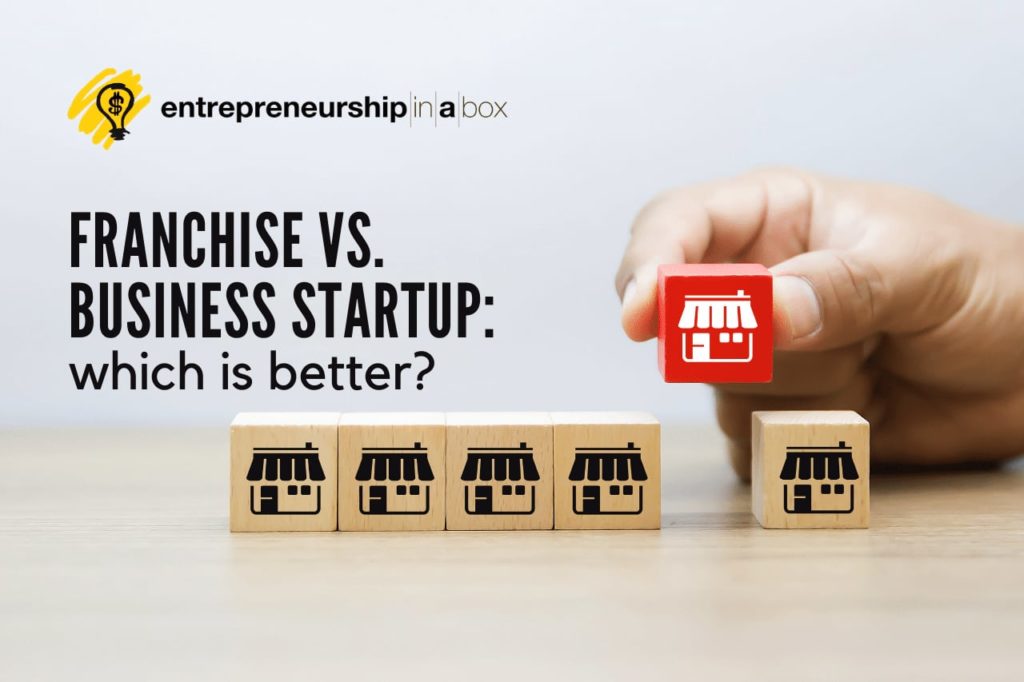There’s a certain appeal to running your own business. Between the challenges you face to the sense of achievement, it’s an exciting process. When looking to run your own company, you have one of two roads to walk. You can embrace the entrepreneurial spirit and start from scratch, or search for an affordable franchise and rely on a business model that has proven to be successful.
Both options come with their respective pros and cons, so let’s figure out what works better for you.
Starting the Business
There’s no doubt about which option is easier to start. By purchasing a franchise, you get access to a tried-and-proven turnkey business model through which you can run your business. It’s like a guaranteed recipe for success; you just have to follow in the footsteps of the original founders. Moreover, the best franchises come with the added benefit of mentorship and expert technical support. Meanwhile, starting your own business in the form of a start will certainly require a lot of planning, preparation, trial, error, and optimization. It’s a long process that demands a lot of patience and willingness to learn until you can take it from the start-up phase to the maturity level.
Success Rate
Let’s start with the statistics. It’s estimated that 20% of the startup business don’t even make it through their first year, with most of them failing within the first five years of operation. That means that they don’t even manage to get out of the startup phase before the business proves futile. On the other hand, the average rate for franchisees’ failure ranges from 15% to 35%. Buying into a franchise can certainly give you a competitive edge over figuring the rope for yourself, but success is only somewhat guaranteed if you follow the steps of the blueprint.
There are many reasons why franchises can fail, even if the outlook feels pretty optimistic. The experts at www.franchise.com/ give their insight on the reasons for failure or success, explaining that it all starts with the franchise you choose. Just because it’s available doesn’t mean it can work perfectly, so you should do your research diligently.
Running the Business
The experience of running a business can pretty much be the same, given that both businesses are on the same level of maturity. Here’s where the difference starts becoming more obvious: a startup is still in its most initiative phases, while a franchise has already reached the maturity phase. It’ll take you quite a lot of time to experiment with a startup until you find a successful business model to follow, something that comes ready with a franchise.
Entrepreneurial Freedom
In a franchise, you’ll be restricted by the operating business model. That means you’ll have to run your office or business premises just like the main branch does and follow in their footsteps, to the extent that customers won’t be able to tell the difference between both branches. You’ll have to pay a part of your income on office renovations, getting supplies (even when they’re expensive), and generally keeping the franchise in the desired state.
While you’ll develop a certain level of ownership in running a franchise, it doesn’t compare to the feelings you’ll have once you breathe life into your own business idea and witness it growing. Moreover, you get to work as you desire, from the comfort of your bedroom, your garage, or in a rented office. Your time and lifestyle are yours to manage and control in a startup.
Costs
Obviously, both kinds of businesses need capital to get started. This capital and costs incurred in a startup can vary greatly, where you can start with the bare minimum using your personal savings, find investment, or open a crowdfunding campaign. With a franchise, the capital you need will probably be much greater than a startup you’re starting on your own budget. The same goes for the costs of running the business, you can somewhat control the expenditure in a startup, but that’s not always up to you in a franchise.
External Factors
Despite your best efforts, external factors play a big role in the success of your business. Market fluctuations and the changes in consumer behavior affect both startups and franchisees to certain degrees. However, franchisees are more prone to be affected by external factors coming from the main branch. For instance, if the main branch or its executives are involved in a matter of public mishap, that’s bound to affect your branch as well.
When looking to start your own business, there are a lot of factors and options you’ll need to consider. While many people enjoy the adrenaline thrill of starting a business from scratch, it’s certainly not for the faint of heart. Others like the idea of buying into an existing and successful franchise to improve their odds. At the end of the day, it’s a matter of risk-to-benefit analysis.





